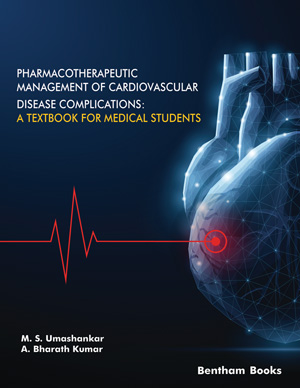Abstract
The cardiovascular disease affects the heart, blood vessels and blood circulation cause death in adult patients. The cardiovascular diseases include ischemic heart disease, congestive heart failure, hypertension, angina pectoris, stroke, peripheral vascular disease can develop due to a low level of blood flow to the heart can increase the risk of cardiovascular complications. Rheumatic fever is an autoimmune inflammatory disease which can develop with infectious species like bacteria, fungi, virus creates inflammatory conditions and results in the origin of inflammatory mechanisms in the body. It occurs, when the immune system responds abnormally to the inflammation with slow deposition of the calcium crystals in the heart valves increase the risk of developing rheumatic heart disease. Currently, the high prevalence of rheumatic heart disease occurred from low and middle-income countries. Ineffective control of rheumatic fever damages several vital organs such as the heart, brain, kidney, and lungs. The blood test, electrocardiogram, chest x-ray, echocardiogram, cardiac MRI scan, treadmill test, coronary angiogram test can determine the cardiovascular risk. The clinical management of rheumatic heart disease with prescribing antibiotics, anti-inflammatory drugs, and corticosteroids are used to reduce the inflammation and also minimizes the progression of cardiovascular damage.
Keywords: Angina Pectoris, Heart failure, Hypertension, Inflammation, Peripheral Vascular Disease, Rheumatic Fever, Rheumatic Heart Disease.






















